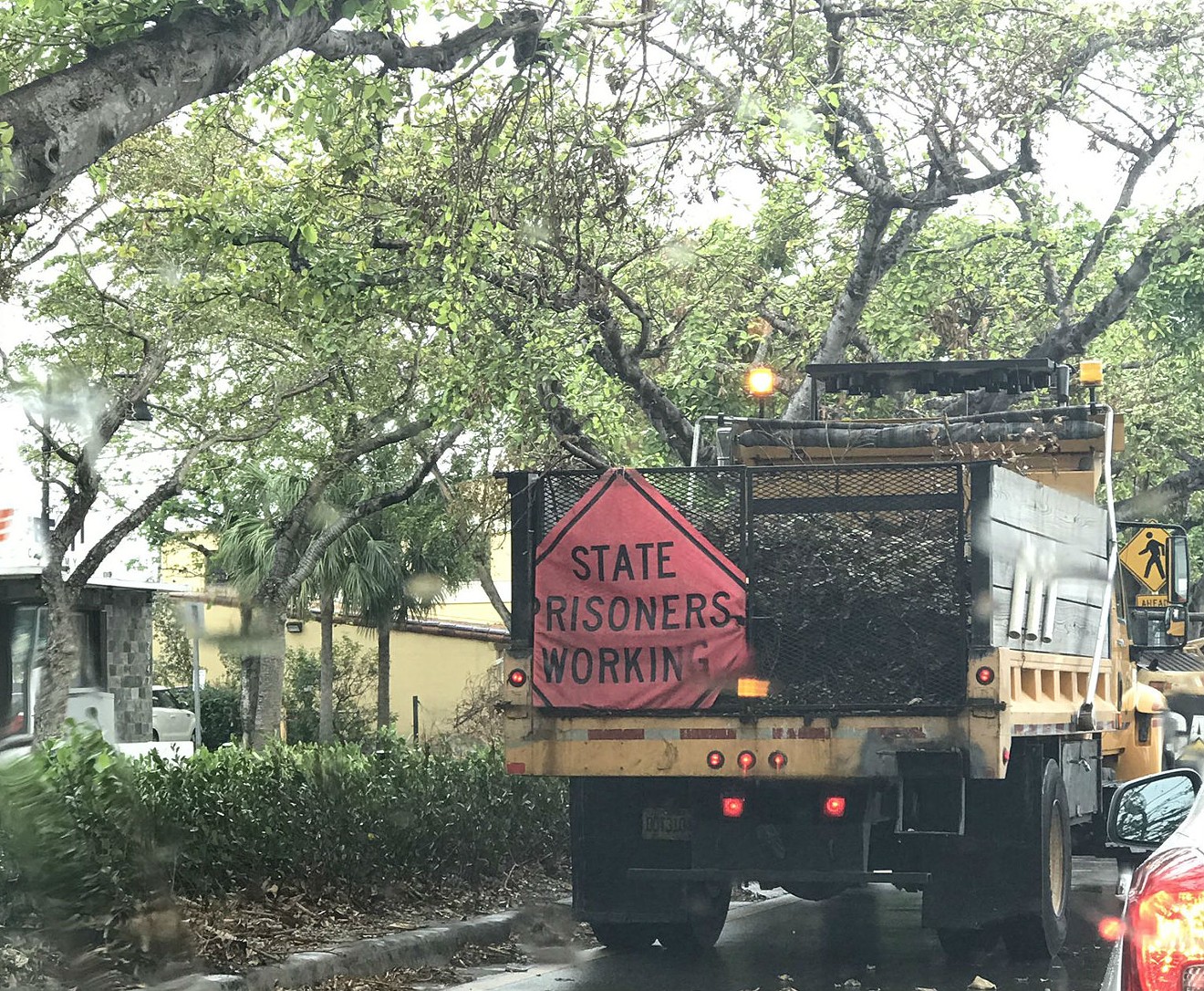The next question, naturally, was how to get inmates. That was another easy fix: The state passed vagrancy laws intended to jail black people — who many white Floridians still believed "would not work without compulsion" — and sentence them to hard labor.
That dark history of racist, forced labor was on Alana Greer's mind as she drove past an inmate work crew carrying a truckload of hurricane debris on Coral Way last Friday.
"It was definitely really alarming," says Greer, the cofounder of Miami's Community Justice Project, a
Across the state, hundreds of prisoners are now being used to clean up the mess Hurricane Irma left when it tore through Florida earlier this month. The Department of Corrections tells New Times that crews have been dispatched on hurricane-related missions in Dixie, Gilchrist, and Franklin Counties in the Panhandle and the city of Avon Park in Central Florida.
On top of that, more than 180 existing work squads of five to ten inmates each have been picking up tree limbs and other hurricane debris on the state roads they're already assigned to clean. (Miami-Dade has 14 such crews.) Neither the hurricane crews nor the road-cleanup crews are paid for their work.
In that sense, Paul Wright, the director of the Human Rights Defense Center in Lake Worth, argues that the "work" is really much closer to outright slavery.
"It’s not that much different from a slave plantation," he says. "The only difference is now the slave owners wear uniforms and their employer is the state."
Part of the problem lies in the 13th Amendment, which abolished slavery except as a punishment for anyone convicted of a crime. Another major hurdle is the fact that most inmates lack the autonomy and means of communication to effectively organize themselves. Using contraband cell phones, thousands of prisoners staged a nationwide strike last year to protest low or nonexistent wages, but there's no indication that a single lawmaker listened, Wright says.
"There has been no effort in the U.S. since 1865 to do anything about prison slavery," he says.
Although some say inmate labor undermines wages for other workers, there's no doubt it provides huge economic relief to the state. On its website, the Florida Department of Corrections boasts that state prisoners work an estimated 6.6 million hours on community projects at a cost savings of $59 million to taxpayers each year. When Gov. Rick Scott was elected, he promised to cut prison spending by $1 billion, in part by using inmates to grow their own food.
Though shows like Orange Is the New Black and the Oscar-nominated documentary 13th have begun to raise America's collective consciousness about prisoners' rights, many believe the practice of inmate labor is here to stay.
"It has a lot of history, and everyone is pretty much in support of it," Wright says with obvious disgust. "I think it's fair to say prison slavery is as rooted in America as the proverbial apple pie."












